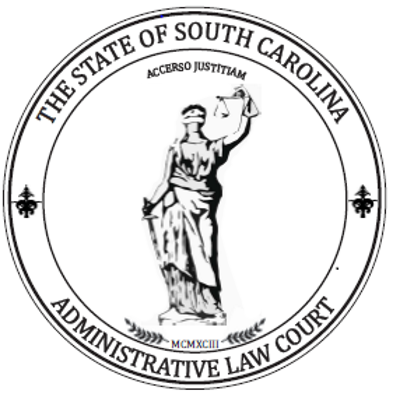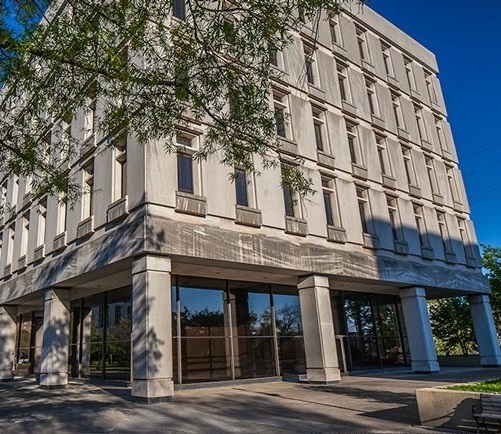ORDERS:
ORDER DENYING PETITIONER’S MOTION FOR TEMPORARY RESTRAINING ORDER AND INJUNCTIVE RELIEF
I. Introduction
Jack H. Kee, Jr. (Kee) asked for a motions hearing seeking both a temporary restraining order and a temporary injunction to prevent Roger Kennedy (Kennedy) from building a dock during the course of Kee's Administrative Law Judge Division challenge to OCRM's decision to grant Kennedy a dock permit. Both the South Carolina Department of Health and Environmental Control, Office of Ocean and Coastal Resource Management (OCRM) and Kennedy oppose Kee's positions.
After considering the arguments of the parties, the motions are denied. No irreparable harm results from the construction of the dock. Further, the appeal route is an adequate remedy since Kennedy can be required to remove the dock if Kee is successful in his challenge.
II. Analysis
A . Temporary Restraining Order
A party adversely affected by an OCRM decision to grant a permit has the right to a hearing before the Administrative Law Judge Division and a further subsequent right of appeal to the Coastal Zone Management Appellate Panel. S.C. Code Ann. § 48-39-150(D). During the hearing and appeal process, the party may seek to enjoin the construction of the permitted docks. See Sierra Club v. Kiawah Resort Associates, 456 S.E.2d 397, 318 S.C. 119 (1995) (Supreme Court upheld circuit court’s decision denying injunction sought to prohibit dock construction during litigation that challenged the granting of the permits). Enjoining via a temporary restraining order is provided by SCRCP 65 so long as the moving party demonstrates the order is needed to alleviate a harm that is both immediate and likely to result in an irreparable injury. See Baines v. City of Danville, 337 F. 2d 579 (4th Cir. 1964), aff’d 384 U.S. 890 (1966). The question of whether an injury is irreparable cannot be decided narrowly or based upon artificial rules; rather, the facts at hand must be addressed. Columbia Broadcast System v. Custom Recording Co., 258 S.C. 465, 189 S.E. 2d 305 (1972).
Here, Kee asserts irreparable harm results to his property from Kennedy’s dock since the dock will affect the value of Kee’s property. Further, Kee asserts irreparable harm results from the mere building of the dock since that act will create a chilling influence upon any decision to order removal of the dock at a later date. I cannot agree.
No evidence establishes the value of Kee’s property will be diminished by the construction of the dock. Furthermore, even if established, no support exists upon which to conclude the loss of value is irreparable. Rather, if a removal of the dock were ordered, such an act would restore the conditions of the area to those that existed prior to the construction. Thus, such restoration would reestablish any loss of value. Accordingly, the allegation of loss of value is insufficient to establish irreparable harm.
Likewise, the mere building of the dock will not create a chilling influence upon any decision to order removal of the dock at the end of the litigation. First, Kennedy is on notice that he builds at his own risk while the litigation continues. Thus, he cannot claim surprise if directed to remove the structure. Second, the removal of the structure, if required, is unaffected by the fact the dock is already built. The law is quite clear that an unpermitted structure will lead to an order of removal accompanied by the imposition of either fines or contempt charges. S.C. Code Ann. § 48-39-130(C) (1998) (permit needed to construct in a critical area); S.C. Code Ann. § 48-39-170(C) (Supp. 1998) (the violator may be subject to "a civil penalty of not less than one hundred dollars nor more than one thousand dollars per day of violation."); S.C. Code Ann. Sec. 1-23-630 (Supp. 1998)(each law judge of the Administrative Law Judge Division has the same power at chambers or in open hearing as do circuit court judges); State v. Kennerly, 331 S.C. 442, 503 S.E.2d 214 (1998) quoting In re Terry, 128 U.S. 289, 303 (1888) ("'The power to punish for contempt is inherent in the nature and constitution of a court. It is a power not derived from any statute, but arising from necessity; implied, because it is necessary to the exercise of all other powers."'). Accordingly, no irreparable harm has been demonstrated in this matter.
B . Temporary Injunction
In its most basic sense, the decision to grant or deny a temporary injunction is an attempt to promote substantial justice. Pelzer v. Hughes, 27 S.C. 408, 3 S.E. 781 (1887). Substantial justice requires that all circumstances be considered before an injunction is issued, and that a determination be made that the injunction is reasonably necessary to protect the legal rights of the petitioning party during the course of the pending dispute. Knohl v. Duke Power Co., 260 S.C. 374, 196 S.E. 2d 115 (1973). Specific criteria in reaching a decision have included the likelihood of irreparable injury if the injunction is not granted, the likelihood of the success on the merits, and whether there are other adequate remedies at law. See Bethel Methodist Episcopal Church v. City of Greenville, 211 S.C., 45 S.E.2d 841 (1948); Williams v. Jones & Amerman, 92 S.C. 342, 75 S.E.2d 705 (1912); and Columbia Broadcast System v. Custom Recording Co. 258 S.C. 465, 189 S.E.2d 305 (1972). Of these three factors, two weigh most heavily against granting the relief sought.
a. Irreparable Harm
The analysis expressed under the Temporary Restraining Order portion of this decision has established that no irreparable harm is present in this case. That same analysis holds true for the requested Temporary Injunction.
b. Inadequate Remedy At Law
Given no irreparable harm, no extraordinary measures are needed to prevent an irreparable injury. Rather, Kee’s complaint is essentially that of asserting OCRM erred in granting the Kennedy permit. The adequate remedy to address Kee’s concerns is the contested case process allowed by S.C. Code Ann. § 48-39-150(D). At the contested case, Kee may develop all necessary facts to establish his case against OCRM, and, if proven, OCRM can be directed to withdraw the permit and Kennedy can be directed to remove the dock. Such a remedy is adequate.
IV. Order
Since no irreparable injury exists and since an adequate remedy at law is provided, the requests for a temporary restraining order and a temporary injunction are denied.
AND IT IS SO ORDERED
RAY N. STEVENS
Administrative Law Judge
Dated: April 26, 1999
Columbia, South Carolina |






